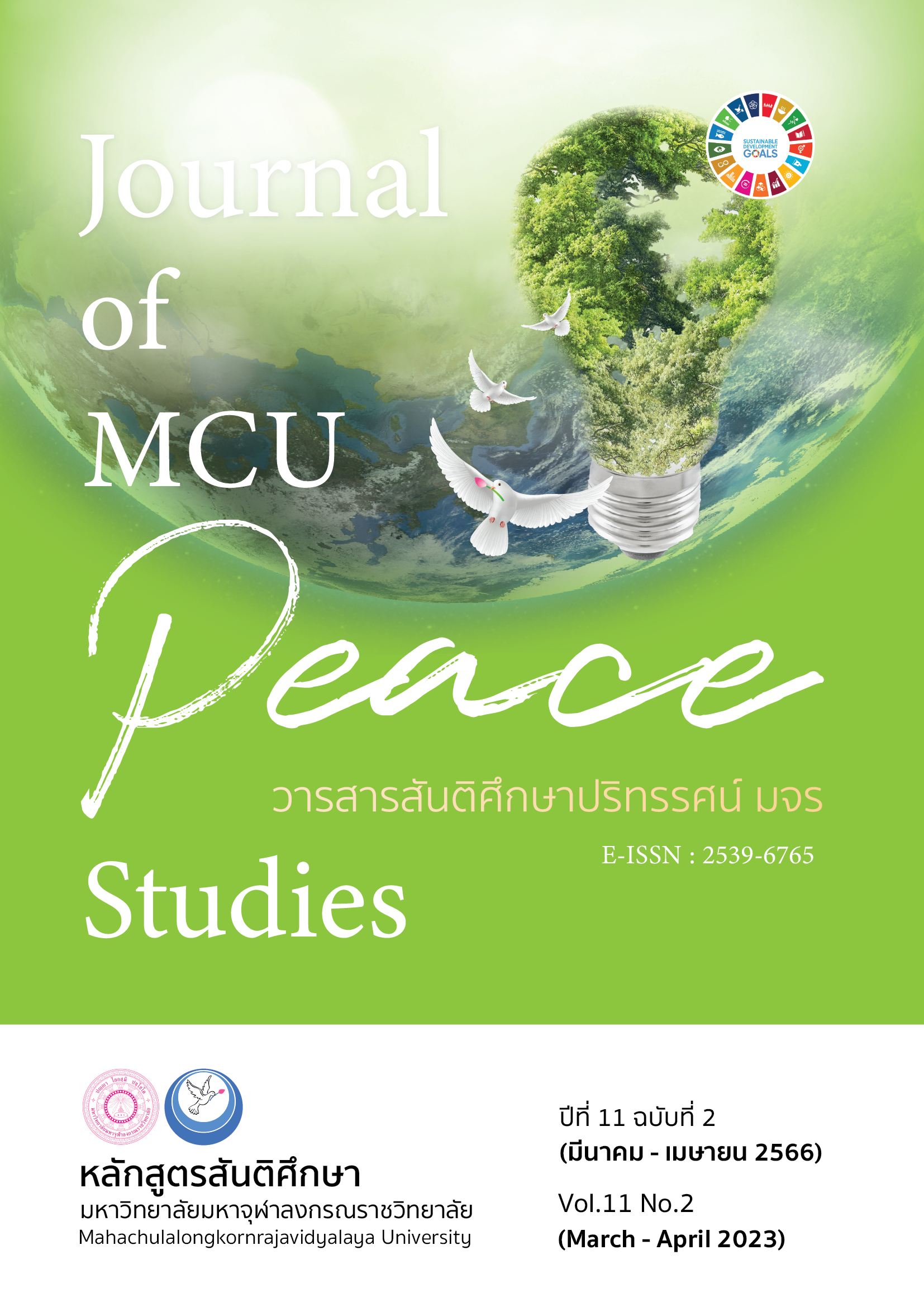A Model for Developing Instructional Leadership in the Digital Age of Basic School Administrators
Main Article Content
Abstract
The research article consisted of the following objectives: 1) to investigate components and guidelines for developing academic leadership in the digital age for administrators of the basic educational institutions; 2) to create and examine the development of academic leadership model in the digital age for administrators of the basic educational institutions; and 3) to assess a model for developing academic leadership in the digital age for administrators of the basic educational institutions. The study employed a research and development (R&D) method by studying documents and relevant research works as well as interviewing with 7 school administrators and experts. The tool used was a structured interview form. The obtained data were analyzed by percentage, mean, and standard deviation (S.D.).
From the study, the following results were found:
1) The components and guidelines for developing academic leadership in the digital age for administrators of the basic educational institutions consists as follows: 1st component referring to academic leadership components in the digital age; 2nd component referring to methods for developing academic leadership in the digital age; 3rd component referring to the process for developing academic leadership in the digital age; and factors for success in developing academic leadership in the digital age for administrators of the basic educational institutions.
2) From creating the development of academic leadership model in the digital age for administrators of the basic educational institutions, the following components were found: 1st component referring to academic leadership components in the digital age; 2nd component referring to methods for developing academic leadership in the digital age; 3rd component referring to the process for developing academic leadership in the digital age; and factors for success in developing academic leadership in the digital age for administrators of the basic educational institutions. The result of 9 experts examining an academic leadership model in the digital age for administrators of the basic educational institutions revealed that a model was of propriety.
3) From assessing the utilization and feasibility of a model for developing academic leadership in the digital age for administrators of the basic educational institutions, the result found that a model had the highest level of utilization ( = 4.61) and feasibility (
= 4.56).
Article Details

This work is licensed under a Creative Commons Attribution-NonCommercial-NoDerivatives 4.0 International License.
Views and opinions expressed in the articles published by The Journal of MCU Peace Studies, are of responsibility by such authors but not the editors and do not necessarily reflect those of the editors.
References
Amdonkloy, S. (2013). The Role of Educational Institution Administrators in the 21st Century. Graduate Studies Journal Phibunsongkhram Rajabhat University, 7(1), 1-7.
Chamchoi, S. (2019). Educational Administration in the Digital Era. Bangkok: Publishers of Chulalongkorn University.
Chansah, T. (2017). Policy Development for the Development of Administrators of Basic Education Institutions to Professional Standards of Educational Institution Administrators of Phayao Primary Educational Service Area Office, District 1. (Doctoral Dissertation). Chiang Rai Rajabhat University. Chiang Rai.
Jennings, C., & Wargnier, J. (2015). Effective Learning with 70:20:10: The New Frontier for the Extended Enterprise. Retrieved August 1, 2020, from http://www.crossknowledge.net/crossknowledge/whitepapers/effective-learning-with-70-20-10-whitepaper.pdf
Kreethapol, T. (2017). The Model of Ethical Leadership Development of Educational Institution Administrators under the Office of Nakhon Ratchasima Primary Educational Service Area Areas 1-7. (Doctoral Dissertation). Nakhon Ratchasima Rajabhat University. Nakhon Ratchasima.
Maneewan, T. (2020). Model of Academic Leadership Development of Educational Institution Administrators Fundamentals of the Digital Age. (Doctoral Dissertation). Ubon Ratchathani Rajabhat University. Ubon Ratchathani.
Office of the National Economic and Social Development Board. (2017). The Twelfth National Economic and Social Development Plan. Bangkok: Office of the National Economic and Social Development Board.
Office of the Permanent Secretary, Ministry of Education. (2016). Government Action Plan for Fiscal Year 2017 of the Office of the Permanent Secretary, Ministry of Education. Bangkok: Office of Policy and Strategy.
Pakotang, J. (2018). Leadership in the Digital Age. For Professional School Administrators. (1st ed.). Ubon Ratchathani: Siritham Offset Publishing.
Paophan, C. (2016). Concepts and Basic Theories of Leadership of School Administrators in the 21st Century. Journal of Educational Administration Khon Kaen University, 12(1), 1-9.
Somprach, K. (2019). Leadership: Concepts, Theory and Development. Khon Kaen: Faculty of Education Khon Kaen University.
Wannasri, J. (2010). Academic Leadership of Educational Institution Administrators Education. Journal Naresuan University, 12(1), 35-48.
Wannasri, J. (2014). Academic Administration in Educational Institutions. Phitsanulok: Rattanasubanprint 3.
Wayne, M. R., & Mondy, J. B. (2014). Human Resource Management. (13th ed.). Retrieved August 1, 2019, from https://demmipeat.files.wordpress.com/2020/06/e-boek-pdf-xhrksschma-9378.pdf


